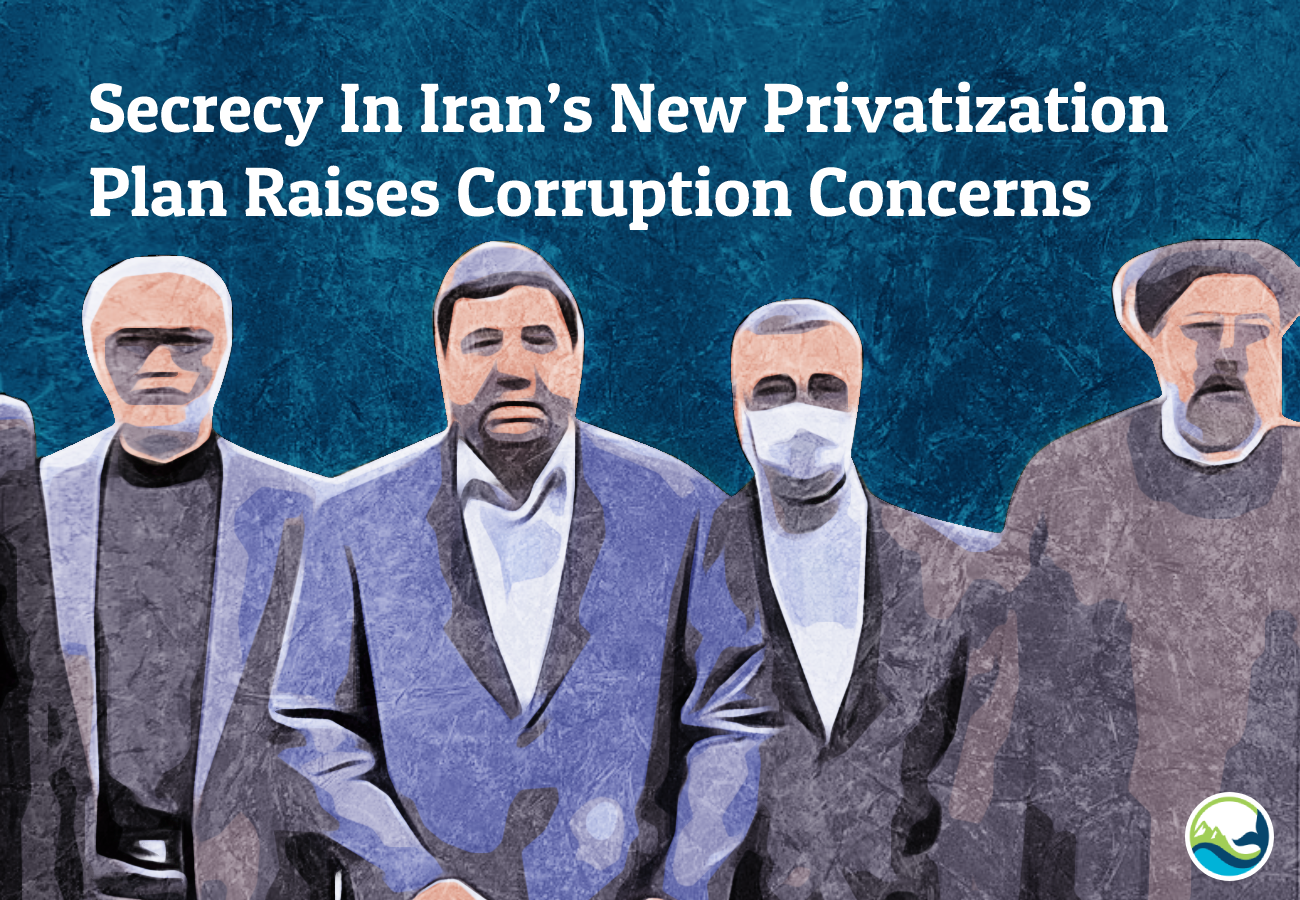
Secrecy In Iran’s New Privatization Plan Raises Corruption Concerns
18 Feb 2023 ( Iran International )
Iranian media and economic experts are characterizing a privatization plan the officials keep secret as “a plunder of public property” and “economic apartheid.”
According to reports, the new privatization plan approved by the heads of the three powers of the government, President Ebrahim Raisi, Majles Speaker Mohammad Bagher Ghalibaf and Judiciary Chief Gholamhossein Mohseni Ejei bars critics of disclosing details of transactions and suspends for two years all legislations that might prevent these transactions.
The government’s plan is to make 1,080 trillion rials out of selling public assets presumably to well-connected regime insiders. In current exchange rates the sum is close to $2.7 billion.
Iran’s Supreme Leader Ali Khamenei has approved the sales and wants them to be done as soon as possible. The transactions are going to take place under the supervision of Vice President Mohammad Mokhber, Economy Minister Ehsan Khandouzi, Interior Minister Ahmad Vahidi, Roads Minister Mehrdad Bazrpash, Planning and Budget Chief Massoud Mirkazemi, and a representative appointed by the Majles Speaker and Judiciary Chief each.
Mokhber is an influential operator who has held positions in business interests controlled by Khamenei’s office. When he was appointed Raisi’s top aide in 2021, political analysts saw the move as Khamenei placing his trusted man in control of the new president’s office.
Committee members have already received immunity from any prosecution resulting from privatization transactions. Critics say that the secrecy and the immunity will give way to financial corruption. The ratification leaves no room for transparency and accountability.
.
Economic experts including Mehrdad Pazouki have already warned about the unpleasant consequences of this type of privatization. Political commentator Abbas Abdi has called the arrangement “unacceptable.”
Iranian lawmaker Ahmad Alirezabeigi has said that some members of the parliament have questioned the legitimacy of the action in a letter to Ghalibaf as one of the three officials who have suggested the sale of government properties. Nonetheless, Ghalibaf has not responded to the question yet, Alirezabeigi said.
Referring to the potential financial corruption involved as a result of secrecy, he warned that “This is auctioning public property and reminiscent of what happened in previous privatization measures.”
In an interview with Khabar Online website, Pazouki said that it should be made clear where the resulting money is ging to be spent.” Pazouki who is a professor of Economics at the Allameh Tabatabai University also said: “Transparent reports about the sales should be put at the nation’s disposal.” He said privatization is a very good thing, but it is important how it will be done. Pazouki added that the government should spend the resulting money on development plans.
Referring to the fact that during previous privatization projects government assets have been distributed among well-connected individuals, Pazouki said that properties should be sold by tender where everyone can bid to buy them. He added that the Ministry of Defense, the Planning and Budget Organization and local government offices have a large portfolio of real estate in Tehran and other cities which need to be sold within the frameworks of this project.
Meanwhile, the head of a government chamber of commerce, Gholam-Hossein Shafei had said in 2021 that the private sector in Iran has been dealt a bad hand by politically well-connected elites who took advantage of privatization to enrich themselves.
The head of the Iranian Privatization Organization, Hossein Ghorbanzadeh, had said last year that the government sought to solve its budget deficit and liquidity issues through privatization of state properties and companies but cannot do so because it does not exactly know their value.
SEE THE ORIGINAL ARTICLE


